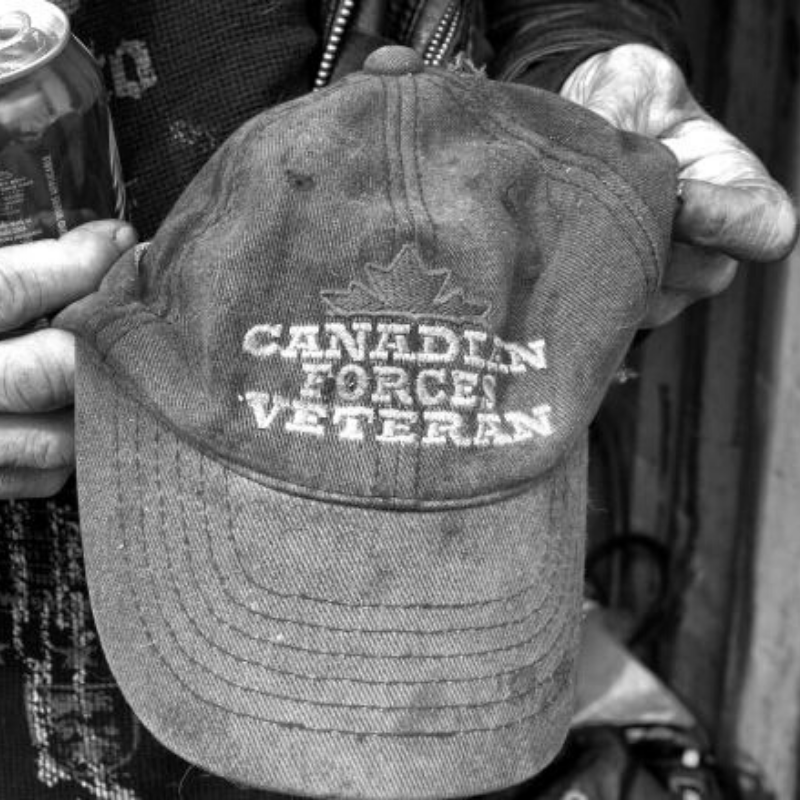Eight Built for Zero Canada communities are committing to end veteran homelessness by March 2022. The eight communities are piloting and testing an approach to ending veteran homelessness that has proven successful in the U.S. and can be scaled to any Canadian community.
 Funded by Veterans Affairs Canada’s Veteran and Family Well-Being Fund, Built for Zero Canada (BFZ-C) will begin work this January with Chatham-Kent, Fort McMurray, Hamilton, Kingston, London, Moncton, Peel Region, and St. John’s to achieve functional zero veteran homelessness by March 2022.
Funded by Veterans Affairs Canada’s Veteran and Family Well-Being Fund, Built for Zero Canada (BFZ-C) will begin work this January with Chatham-Kent, Fort McMurray, Hamilton, Kingston, London, Moncton, Peel Region, and St. John’s to achieve functional zero veteran homelessness by March 2022.
BFZ-C is adapting a model from Community Solutions in the United States where 69,000 veterans have been housed, nine communities have ended veteran homelessness and two communities have reached functional zero for both chronic and veteran homelessness. The same approach is being used by 33 Canadian BFZ-C communities focused on chronic homelessness. Four BFZ-C communities have already achieved reductions in chronic homelessness.
The approach used by BFZ-C embeds the mindsets and problem–solving skills and tools required to solve complex, dynamic problems which cannot be solved by individual programs or single organizations but must integrate the efforts of multiple parties around a constantly shifting problem.
BFZ-C will help these eight communities put new problem-solving teams in place, learn how to collect and use data that enables actionable insights into the real–time, person–specific nature of veteran homelessness in their community, streamline and target local resources and responses, and drive measurable reductions in veteran homelessness toward the goal of functional zero.
Functional zero for veteran homelessness is achieved when a community has fewer veterans experiencing homelessness that it can routinely house in a single month (based on a six-month average housing rate) sustained for three consecutive months. Check out this video for further information on real-time data and a functional end to veteran homelessness.
Our ultimate goal is a complete and lasting elimination of all homelessness in Canada. The Canadian Alliance to End Homelessness has prioritized chronic and veteran homelessness in order to focus on those Canadians in the most urgent need across a broad range of populations (including youth, women, Indigenous Peoples, and rough sleepers), to achieve rapid success, build and test key strategies while putting in place critical systems which can be scaled up to ultimately end homelessness for all Canadians.
Last June, on the eve of the 75th anniversary of D-Day, the Canadian Alliance to End Homelessness along with VETS Canada, the Royal Canadian Legion and Old Brewery Mission joined forces to support Motion M-225 in the House of Commons. The motion called on the federal government to set the goal of ending veteran homelessness by 2025 and received unanimous support in the House of Commons.
“We have a duty to these men and women. This is a solvable problem. Let’s get on with it,” said Tim Richter, CAEH President & CEO.
The eight communities will form a new BFZ-C veteran cohort launching in January 2020. In the meantime, BFZ-C is working on building partnerships with veterans‘ organizations and putting in place the veteran–specific tools and data infrastructure to support them. More communities are expected to join the cohort in July 2020.
Learn more at bfzcanada.ca.
Register for upcoming By-Name Lists and Coordinated Access webinars
 By-Name Lists (BNL) and Coordinated Access systems (CA) are essential community strategies for ending homelessness. These monthly webinars will feature specific topics related to the development and implementation of these strategies.
By-Name Lists (BNL) and Coordinated Access systems (CA) are essential community strategies for ending homelessness. These monthly webinars will feature specific topics related to the development and implementation of these strategies.